Abortion in US: What surprise Supreme Court ruling means
- Published
The abortion battle explained in three minutes
In a surprise move, the Supreme Court has issued a pair of decisions on an Indiana law restricting abortions, offering clues on how the nine-member court - with two new justices appointed by Donald Trump - could view the contentious issue in the days and years ahead.
The court's actions were a mixed bag for those on both sides of the abortion debate.
In an unsigned opinion, the justices upheld a state requirement that all foetal remains - whether the product of a miscarriage or an abortion - be either buried or cremated.
Anti-abortion activists viewed the provision as a step toward recognising foetal tissue not as medical waste but as human remains deserving dignified treatment.
Abortion rights groups countered that the Supreme Court precedent does not consider a foetus to be human. The purpose of the Indiana law, Planned Parenthood wrote in a statement, is to "shame and stigmatise" women seeking abortions.
A majority of the justices sided with Indiana, holding that the burial provision advanced a legitimate interest of the state, even if the law wasn't "perfectly tailored" to address foetal remains in all circumstances.
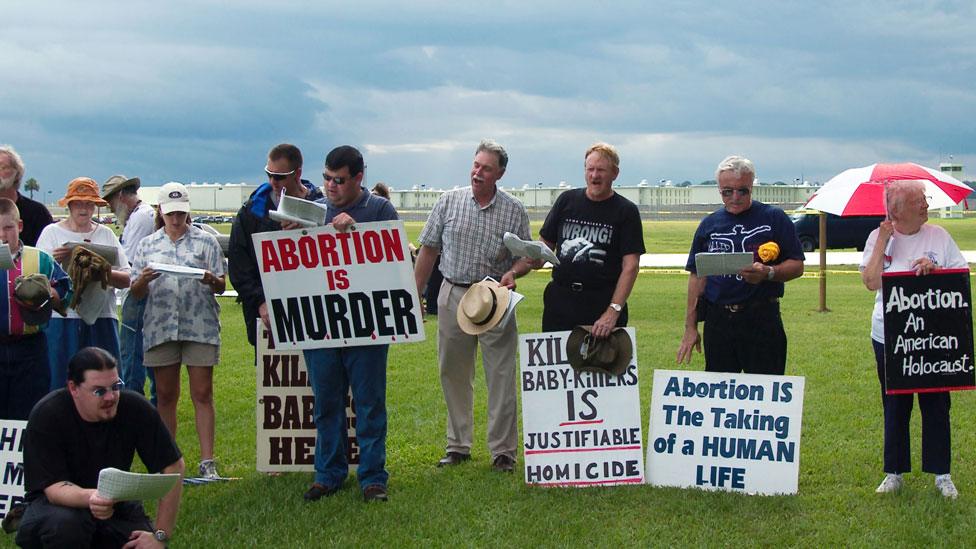
The second portion of the Indiana law at issue was where the real fireworks could have erupted - but didn't. The justices declined to reverse, or even review, a lower court's ruling invalidating the portion of the Indiana law that prohibited elective abortions performed because of the race, gender or "disability" of the foetus.
While there is little evidence of abortions performed because of race or gender in the US, physicians regularly test for foetal abnormalities, presenting parents with the decision of whether to terminate the pregnancy.
If the court had chosen to consider the case - with full legal briefings, oral arguments and a ruling sometime next year - it could have served as the vehicle to reverse the 1973 Roe v Wade precedent upholding a woman's unfettered right to abortion during the first trimester of pregnancy.
Instead, the court sidestepped the matter, prompting a rebuke from Jeanne Mancini, president of March for Life.
"No one deserves to lose her life just because she was born with Down syndrome or because of the colour of her skin," she said.
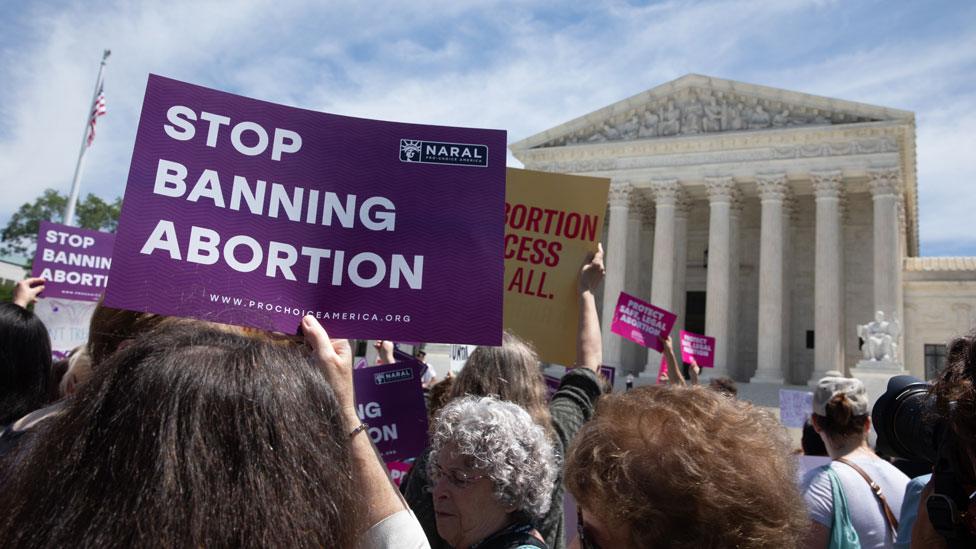
Justice Clarence Thomas, a conservative member of the court, agreed with the decision - but said his colleagues would eventually have to act.
"Given the potential for abortion to become a tool of eugenic manipulation, the Court will soon need to confront the constitutionality of laws like Indiana's," he wrote in a concurring opinion.
With nearly a dozen states enacting new abortion regulations and outright prohibitions in 2019, this won't be the only opportunity for the Supreme Court to reconsider whether there is a constitutional right to abortion.
Anti-abortion activists, and state legislatures with anti-abortion majorities, may believe that with the addition of Mr Trump's appointments, there is a majority on the court willing to finally put a stake through the heart of Roe.
Tuesday's decisions, however - made with little fanfare and no advanced notice - could be an indication that a majority of the justices on the court are in no hurry to reverse 46 years of precedent.
That won't stop the issue from being pulled into the vortex of America presidential politics, however.
Several Democratic candidates are calling for congressional legislation protecting abortion rights across the US - including states that have recently tried to curtail the procedure.
Meanwhile, Mr Trump has reiterated his opposition to abortion except in the cases of rape, incest and to protect the life of the mother.
Also on Tuesday an abortion clinic in St Louis announced that it may be forced to stop performing the procedure on Friday because the state had yet to renew its licence. If that happens, Missouri would become the first state since Roe was decided to have no abortion clinics within its borders. Five other states have only one.
The Indiana ruling could indicate the Supreme Court does not want to wade into abortion politics in the middle of a presidential campaign season. The justices may avoid the issue for now, but they can do little to stop the increasingly heated battle over Roe and the legality of the procedure.
- Published18 March 2019
- Published14 February 2019
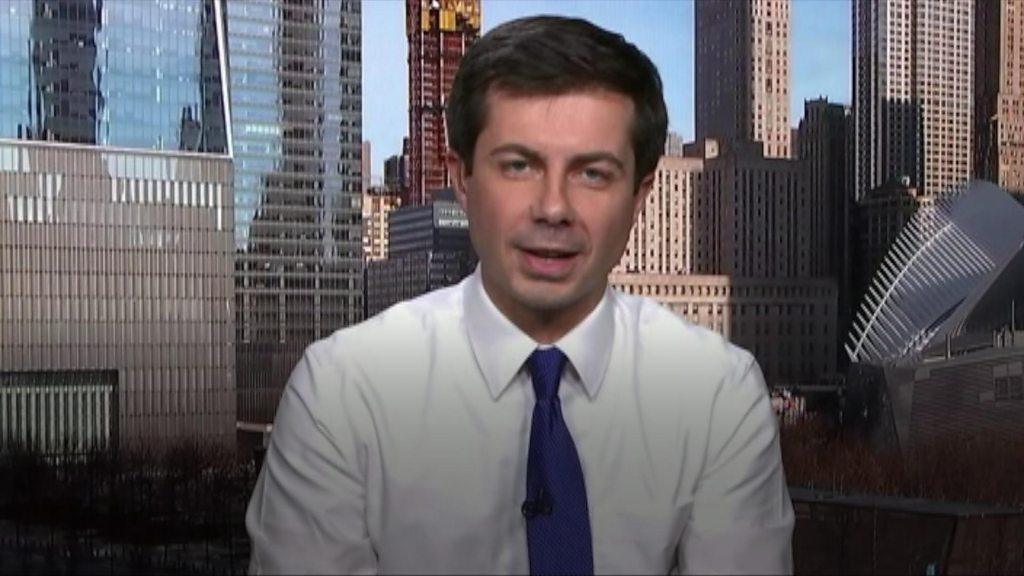
- Published22 March 2019
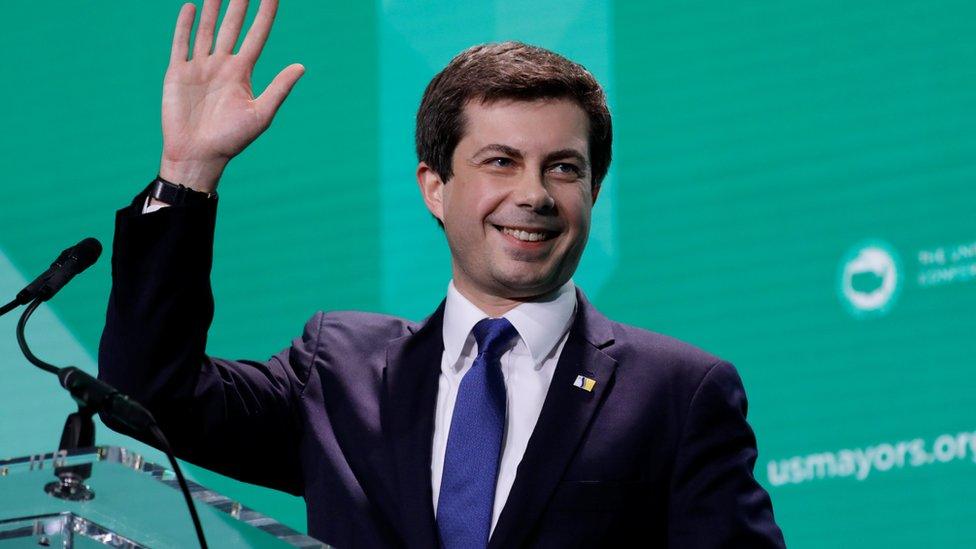
- Published23 January 2019
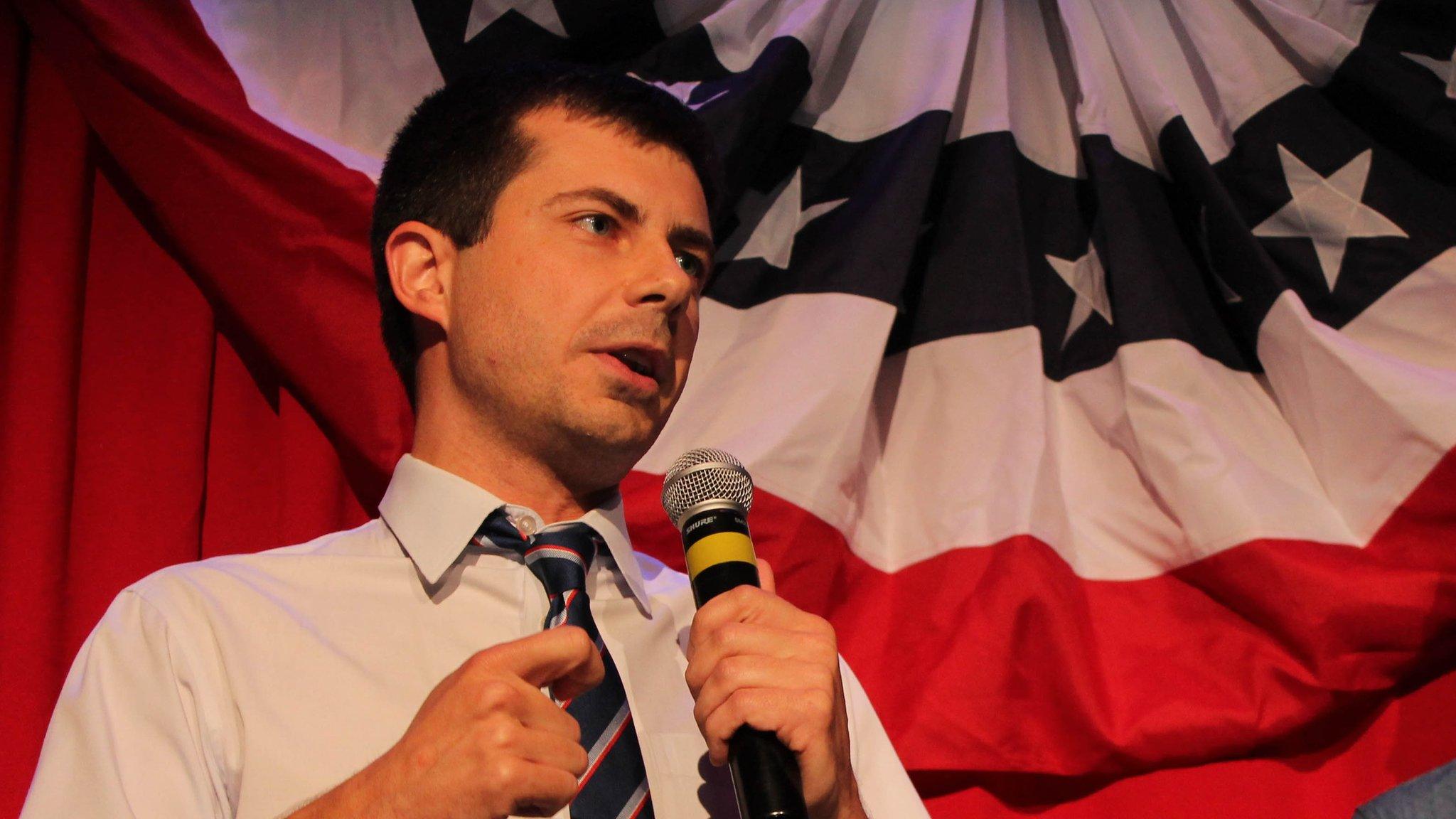
- Published1 April 2019
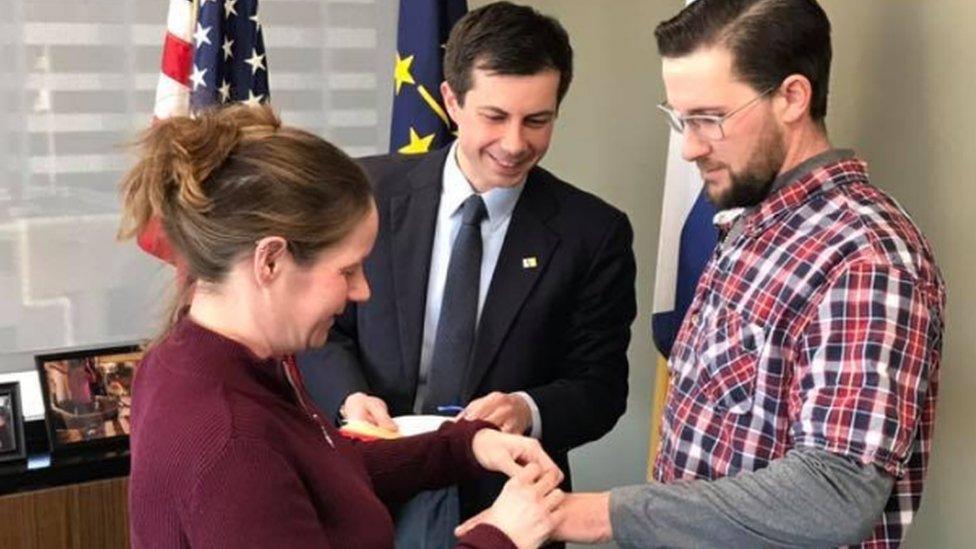
- Published3 April 2019
- Published26 March 2019
- Published5 March 2020

- Published12 March 2019
